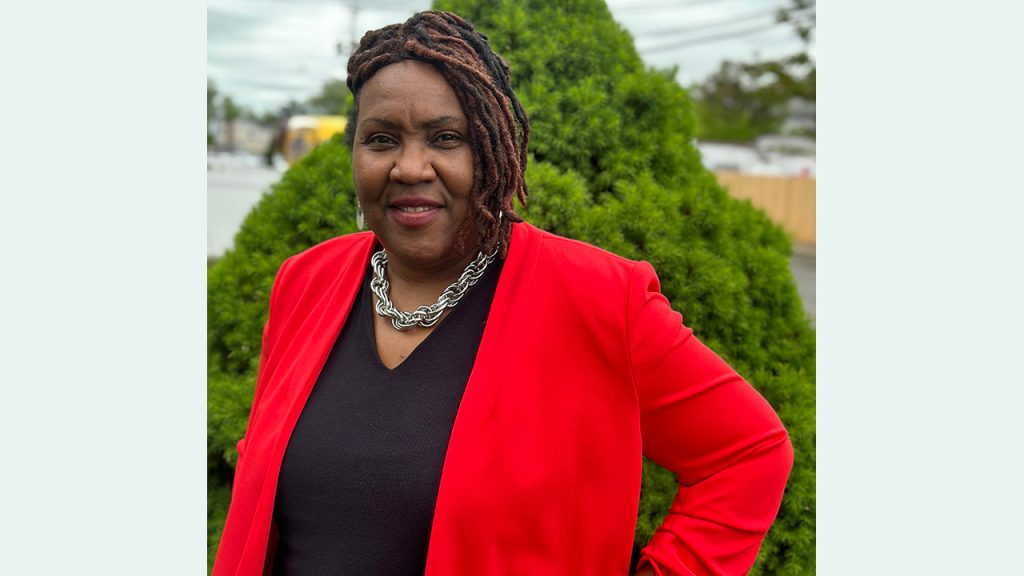Throughout 25 years of social services work, helping people who were homeless or battling drug addiction and seeking to regain custody of their children, Doreen Gibbs felt there was a missing piece—one that fell into place at Fordham.
“I’ve long felt that there needed to be a spiritual component when we’re working with clients,” said Gibbs, owner of a seniors-focused business who is graduating with a master’s degree in mental health counseling and spiritual integration. “In my individual work with clients … their spiritual life was very much a part of how they were raised.”
The program, offered at the Graduate School of Religion and Religious Education, provided a “fantastic” education in mental health and spirituality that Gibbs thinks will become more sought-after. “I think this field is only going to expand,” she said.
Church, a ‘Second Home’
A New York City native, Gibbs is a granddaughter of Southern sharecroppers who remembers the bigotry her family faced after settling in the Rosedale section of Queens decades ago. She recalled church as “a second home … where we found support.”
She graduated from Baruch College and earned an MBA from Baruch and a master’s in vocational rehabilitation counseling from NYU. Later in her career, about 12 years ago, it was through her church that she developed the idea for her company, Safe Circle Inc., which serves seniors and caregivers in the New York City area. She enrolled in her Fordham degree program after its spirituality aspect caught her eye during an internet search.
After graduating, she hopes to expand her company to help women of color dealing with multigenerational trauma and incorporate more spirituality into its services. In addition, she said, “I have a strong leaning towards bringing mental health to the forefront, particularly within the Black church.”
“I think that the church is a good place to begin having these educational forums about mental health and normalizing the discussion about [it],” she said.
Standing on Others’ Shoulders
Key to her professional growth at Fordham was an eight-month internship with the Faith Mission Alcohol Crisis Center in Queens, where she gained experience in integrating spirituality into daily care. She got “a full visual of what alcohol and drug addiction can do to the mind and body,” and worked with clients to help them see the impact of drug addiction in their lives and identify its triggers. “The change when they’re drug free is remarkable,” she said.
Like many of her classmates, Gibbs was pursuing the 20-hour-a-week internship while going to school full time—something that was made easier by supportive, understanding professors. Her path to the degree was also smoothed by her encouraging “church family” at Bethany Baptist Church in Jamaica, New York, as well as support from family members like her daughter and her mother.
“I would come in some evenings and she would’ve come by the house—‘I left a plate for you on your stove,’” Gibbs said.
She’ll be thinking of them all at commencement.
“When you walk across that stage, you are walking across on other people’s shoulders, really,” she said. “If you’re blessed to have that support, they’re graduating with you.”
Remember, on the evening of May 18, New York’s Empire State Building will be illuminated in Fordham maroon for our graduates.

